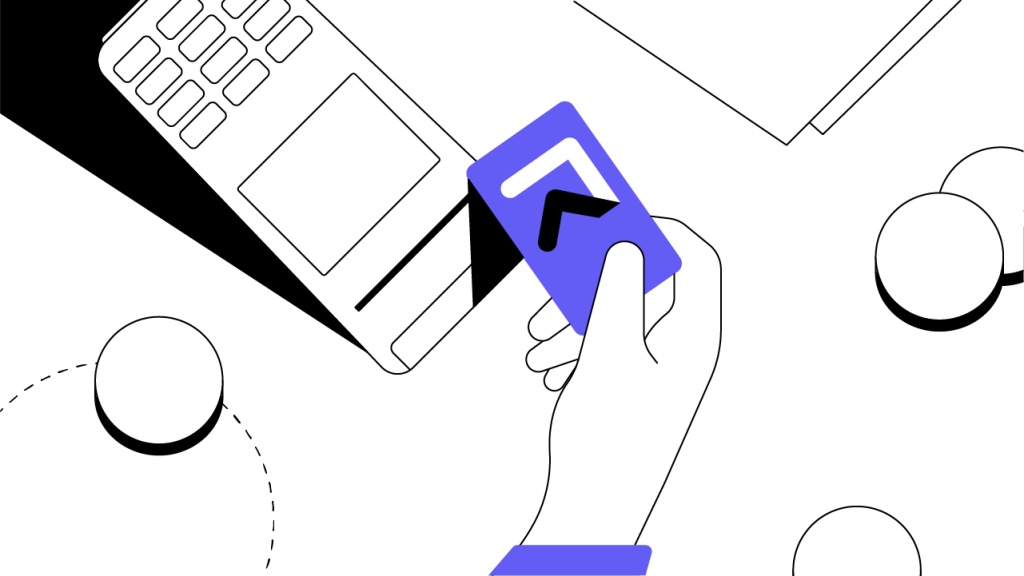Contents
Request Network: A Decentralized Crypto Payment Protocol
Request Network is a crypto payment protocol for transactions, invoice processing, and remittances.
Updated November 16, 2023 • 2 min read

Summary
The Request Network is a payment protocol built on the Ethereum blockchain that enables efficient crypto exchanges and remittances for products and services. Request Network crypto payments are supported on the Ethereum, Polygon, Celo, Fantom, and Near protocols. The REQ token facilitates anti-spam, governance, staking, product discounting, and independency operations on the Request Network.
What Is Request Network?
The infrastructure beneath many of today’s payment platforms can be costly, slow, exclusive, and inefficient. This is due largely to the number of intermediaries that separate sender and recipient. The Request Network is a crypto payment protocol built on the Ethereum blockchain. It seeks to innovate beyond today’s incumbent payment networks by eliminating these third-party processors from digital financial transactions entirely.
Request takes the simple user interface of a Web 2.0 payment app (the likes of which we’re all familiar with), fuels it with Web 3.0 infrastructure, and applies it to cryptocurrency use cases. In November 2021, Request Network crypto payments were available on several leading blockchains, including Ethereum, Polygon, Celo, Fantom, and Near.
How Do Requests Work?
As the name suggests, the Request Network crypto protocol was built to enable one party to "request" payment from another party. When a user “requests” payment on the network, all they need to provide is their crypto wallet address and transaction amount. If the request is an invoice, it can also include terms and conditions of payment. Once these details are input, the user can send their request to the counterparty for payment. This process generates a record on the Request Network, allowing all involved parties to keep track of invoices and payments for accounting purposes.
Although there are no costly intermediaries raising prices or slowing processes, transactions on Request Network are not free. Each comes with a small transaction fee. This is because transactions on the Ethereum blockchain also require transaction fees, similar to the fees charged by traditional payment processors. This blockchain invoice processing cost is necessary to broadcast a change to the Ethereum network. In other words, Request users are paying transaction fees to access Ethereum processing power, which is necessary to process their request.
The Request Network Token (REQ)
Across the Request Network ecosystem, the request network token (REQ) facilitates several functions. Let's take a closer look at each of these applications:
Anti-spam: The transaction fee charged on every request discourages malicious network usage, mitigating spam. Without spam transactions, network performance is better, improving the user experience (UX).
Governance: The Request Network is a decentralized protocol that utilizes an off-chain governance structure. Participants can vote on critical decisions that impact the network's long-term success through this mechanism. The project team plans to introduce an on-chain governance structure parallel to the development of a decentralized autonomous organization (DAO). Under the overhauled governance structure, the REQ utility token will be necessary to cast votes.
Deflation: The transaction fees charged to users accumulate in an Ethereum smart contract that forms the basis of a deflationary mechanism for the REQ crypto supply. This mechanism helps stabilize the value of the REQ token by reducing the circulating supply.
Staking: Users can stake REQ tokens on Bancor in a single-token liquidity pool that provides impermanent loss protection. In addition, Request plans to introduce an internal staking concept for node deployment. In other words, by staking REQ, users can operate a node that provides their end-users with a more streamlined experience.
Discounts: REQ crypto holders can receive discounts on products when they become available.
Independency: The REQ token allows the Request Network to operate simultaneously on multiple blockchains — or its own dedicated blockchain. REQ is built to be an interoperable utility token that migrates without negatively impacting network performance. As a result, network performance is independent of the token.
The Request Network Crypto Ecosystem
Although crypto payments underpin the Request Network offering, services on the platform are expanding towards providing a fully integrated suite of applications that companies can use for accounting, invoicing, payment processing, and auditing. The Request suite of services operate under a united banner that seeks to link the traditional finance infrastructure with the digital economy in a streamlined manner.
More specifically, "Request Finance" provides a suite of financial tools for managing crypto transactions, while "Request Create" allows users to generate and share payment requests. In addition, the "WooReq" plugin enables crypto payments on WooCommerce applications while "Request Invoicing" transforms payment requests into accounting-compliant transactions. These applications come together to deliver a crypto-facing platform that meets regulatory requirements in a wide variety of countries.
Cryptopedia does not guarantee the reliability of the Site content and shall not be held liable for any errors, omissions, or inaccuracies. The opinions and views expressed in any Cryptopedia article are solely those of the author(s) and do not reflect the opinions of Gemini or its management. The information provided on the Site is for informational purposes only, and it does not constitute an endorsement of any of the products and services discussed or investment, financial, or trading advice. A qualified professional should be consulted prior to making financial decisions. Please visit our Cryptopedia Site Policy to learn more.

Is this article helpful?


